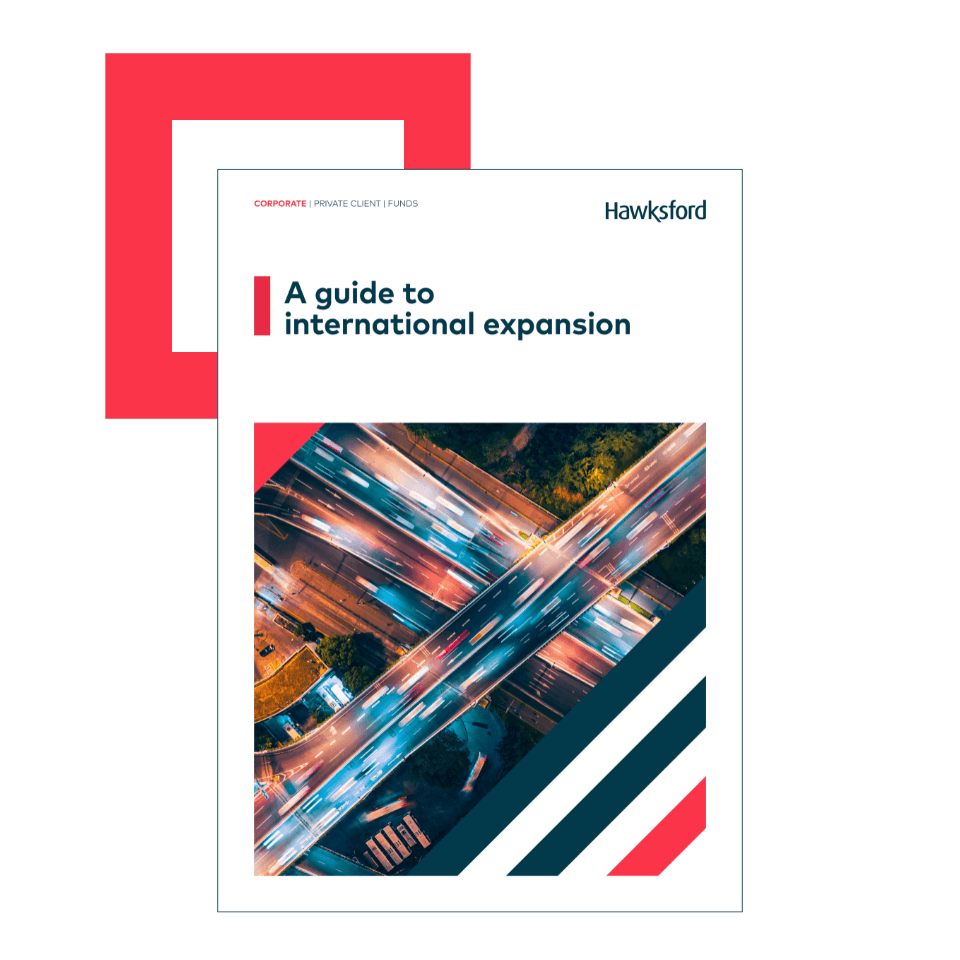Guides
25 November 2025
Jersey Private Funds (JPFs)
Jersey Private Fund (JPF) - quick setup, flexible, cost-effective...
We are an international provider of Corporate, Private Client and Fund services. We’re committed to making every interaction meaningful and productive, and delivering solutions that are tailored specifically to you.
Learn about Hawksford
Download our guide to international expansion
This guide details the major benefits of international expansion, the challenges involved and how we can help you meet them as you grow your business.
Download nowWhether you’re a multinational corporation, a family-owned company, a growth or early-stage business, an entrepreneur, high-net-worth individual or intermediary, our wide range of corporate services can deliver the solutions you need.
Contact usOur services
Empowering your global business goals
Bespoke solutions for businesses that want to expand or enhance their global footprint
Our global solutionsDownload our guide to international expansion
This guide details the major benefits of international expansion, the challenges involved and how we can help you meet them as you grow your business.
Download nowOur Private Client team has one goal – to provide solutions that will protect and grow your wealth now and for generations to come.
From supporting individuals and family businesses through to full family office services, we work closely with you and your advisers to ensure your ambitions become a reality.
Contact usOur services
The home of family office
We are experts in the family office space and have, in some cases, worked with advisers and clients for many generations, ensuring that financial goals continue to be met as family wealth is handed down.
Speak to our family office expertsOur flexible fund administration services provide invaluable support, whatever your needs. Experts in alternative asset classes and fund structures, we take a hands-on approach in the day-to-day running of your fund, freeing you up to focus on your investments.
Contact usOur services
Fund services
We provide flexible fund administration services targeted at a wide range of alternative asset classes and fund structures.
Our fund servicesMarket focus
Our multilingual teams have extensive experience working with clients in key regions around the world. We share some of this knowledge and experience in the dedicated market focus pages below.
Did you know, we can support you in more than 100 countries?
Through our global reach and extensive local market knowledge, we’re here to help you achieve your global business ambitions.
View our interactive guidesHow we've supported our clients
We've supported more than 4,000 clients across the globe, helping them to overcome a range of international business challenges.
Read their stories hereGuide: Global
expansion strategy
This guide provides an overview of what you need to know when considering expanding your business globally
Download nowInsights, guides and news
Hawksford is an international provider of Corporate, Private Client and Fund services. We enable our clients to realise potential and maximise opportunities. We deliver value for our clients by anticipating their needs and thinking beyond tomorrow.
Download our guide to international expansion
This guide details the major benefits of international expansion, the challenges involved and how we can help you meet them as you grow your business.
Download nowCareers at Hawksford
We recruit for attitude and train for the skills we require. We understand the importance of investing in our people to help them to fulfill their ambitions.
#WeAreHawksford
Build your career with us
Committed to your ambitions
Helping you realise your business or personal wealth ambitions is what matters to us. Providing solutions and overcoming obstacles is what we do
Watch videoStay up to date with the latest industry news, insights and practical guides.
SubscribeKnowledge hub search
Guides
25 November 2025
Jersey Private Fund (JPF) - quick setup, flexible, cost-effective...
Type
Service Line
Topics and Themes
Region
Country
Country
Country
Country
Country
Sorry, there are currently no filtered items to show

This guide details the major benefits of international expansion, the challenges involved and how we can help you meet them as you grow your business.